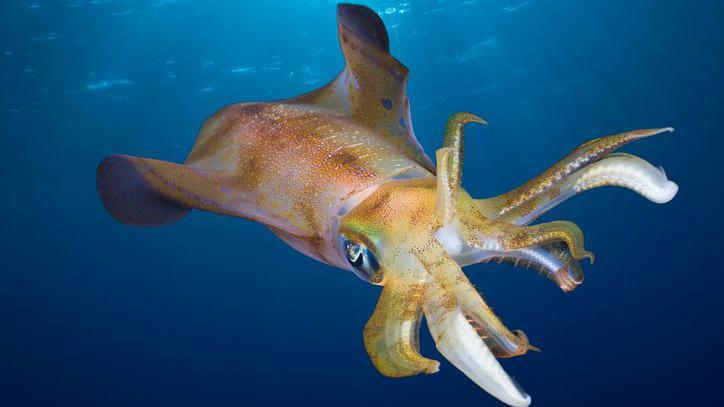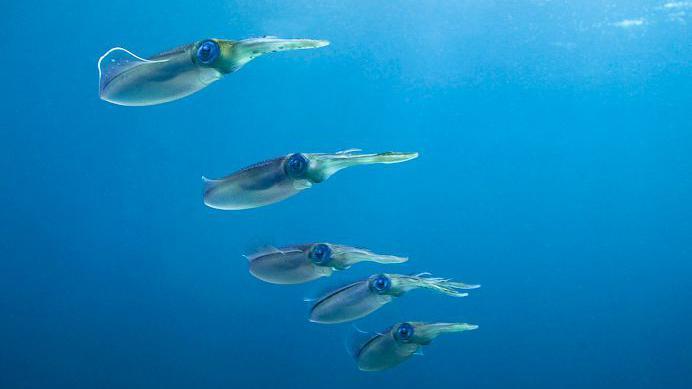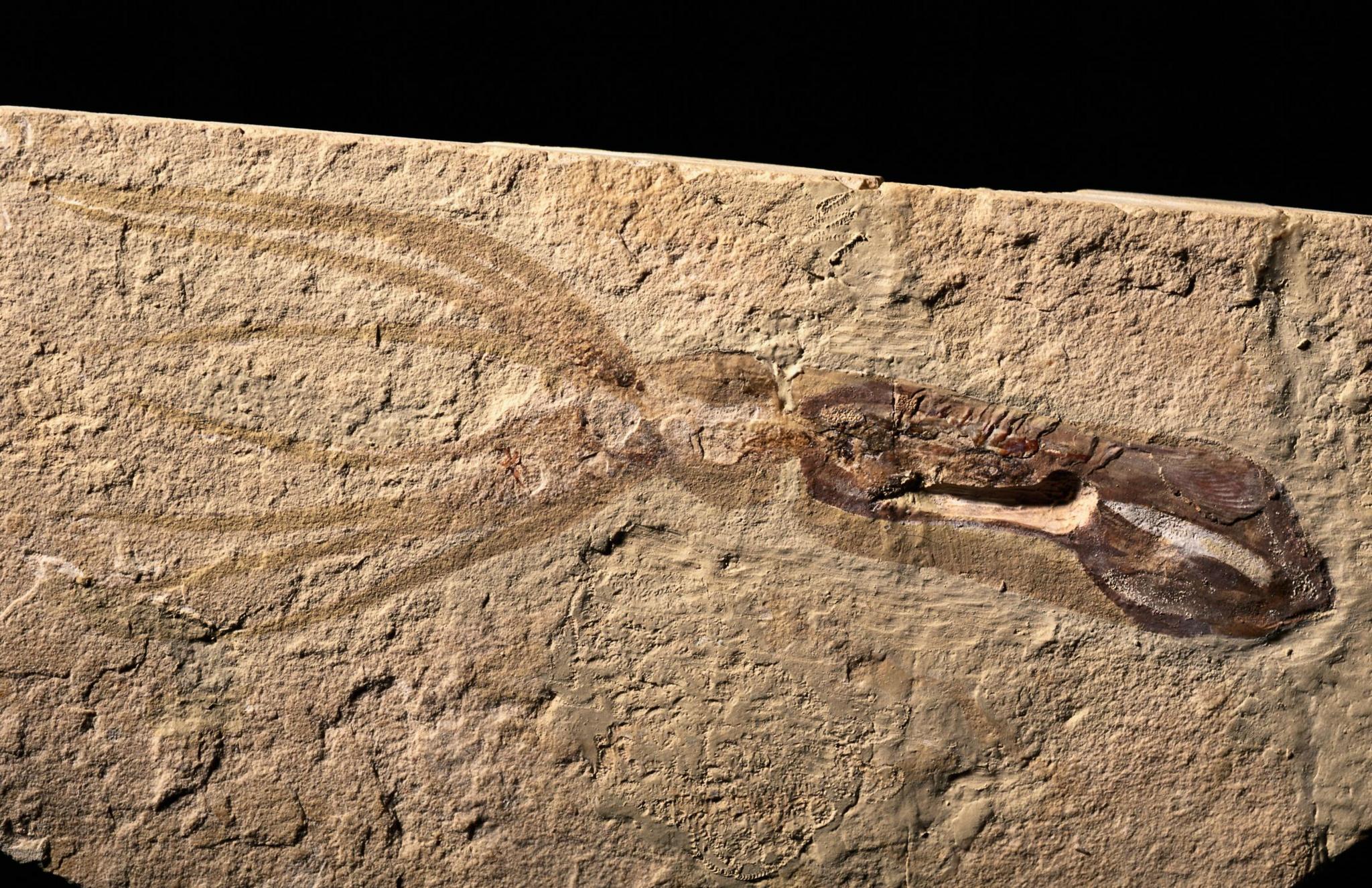Scientists say ancient squid ruled the oceans

- Published
When did squid first appear in our oceans and how did the evolve?
That's a question that has puzzled scientists for many years.
However, a team of researchers in Japan think they might have discovered the answer.
They've developed a new technique to scan fossils, allowing them to look at rocks in 3D form.
To their surprise, this helped them find more than 1,000 beaks of ancient cephalopods, suggesting that the animals dominated oceans millions of years ago.
More like this
Orcas use seaweed to help scratch each other's backs
- Published24 June
Glowing fish could be communicating with each other
- Published18 June
Bigger and more of them - octopus boom in UK waters
- Published29 May
What are Cephalopods?

Cephalopods - a group of marine animals which include squid - have been swimming in our oceans for millions of years.
However, not much is known about ancient squid, as they are rarely preserved.
This is because they are soft-bodied and don't have hard shells, meaning they rarely turn into fossils.
A team of international scientists, led by experts at Hokkaido University in Japan, developed a new advanced technique to scan rocks.
This allowed them identify one thousand fossilised cephalopod beaks hidden inside rocks, which dated back to the late Cretaceous period.
Among these small beaks were 263 squid specimens, including about 40 different types that had never been seen before.
What surprised scientists was how common squids were in ancient oceans.
The team found that squid fossils were far greater in number than those of other bony fish and ammonites.

Squid fossils are rare and hard to find
Author of the study, Dr Shin Ikegami, from Hokkaido University explained: "In both number and size, these ancient squids clearly prevailed the seas.
"Their body sizes were as large as fish and even bigger than the ammonites we found alongside them.
"This shows us that squids were thriving as the most abundant swimmers in the ancient ocean," he added.
The team hope that their new technique could help us better understand ancient marine ecosystems.
